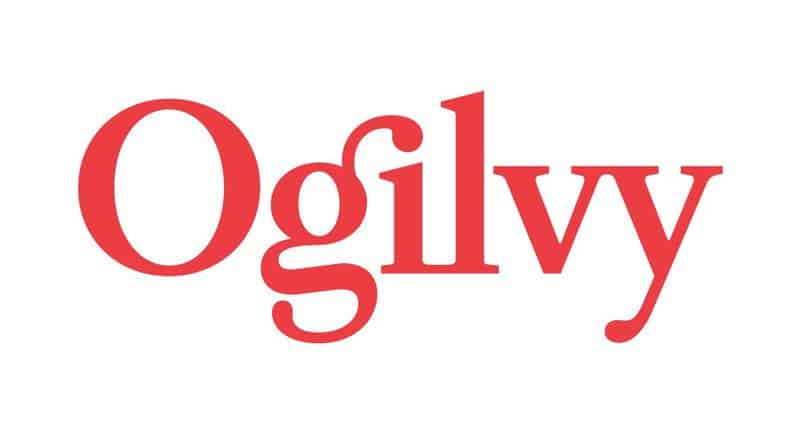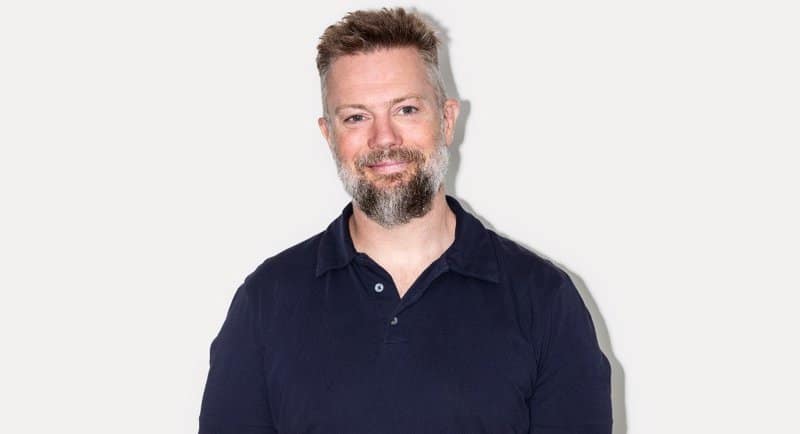Toby Harrison has been the chief strategy officer of Ogilvy for the past six years. Last year, he was also appointed to growth and innovation lead of Australia and New Zealand.
Harrison spoke to Mediaweek about his expanded role, what makes a strong media strategy and strategist, and the outlook for the agency in the year ahead.
Harrison on his role at Ogilvy, what he oversees and the challenges so far
As chief strategy officer of Ogilvy’s integrated network – covering experience, PR, health, and consulting businesses – he oversees strategy across Australia and New Zealand, including an office in Bali.
Harrison has had stints at BMF, The Monkeys, Droga5 and adam&eveDDB in London. With a year in the expanded role under his belt, he shared that it hasn’t come without its challenges.
“I’ve worked at a lot of creative companies. But [Ogilvy], I think, is the one that has been put together in the most creative way.
“Having removed any of the barriers that stop people from being able to collaborate, the biggest challenge is breaking people out of the muscle memory that they have of operating independently and teaching them how to collaborate effectively,” he said.
“It’s quite a skill, and it takes a lot of nuance and cultural change to get people to feel safe and secure, collaborating with others and knowing that everyone’s work is going to be cumulatively respected and will make the final product as good as possible.
“It’s building a psychological safety within the whole office that everyone feels like they can contribute in a positive way, regardless of what part of the business they sit in and what level of seniority they have,” Harrison added.
Harrison on his approach to leadership and his team
The chief strategy officer jokingly described his leadership style as “relaxed” but noted he has a coach-style approach to his role.
“I used to think it was all about having a captain’s performance and leading from the front. Now, it’s about empowering and asking the right questions to enable people to find their way forwards,” he said, adding that he allows space for people to grow, develop, make their own mistakes, and learn from them.
Harrison explained that he takes a different stance in terms of leadership with clients. “It’s more of having a slightly more provocative point of view and trying to urge them to see things from a different perspective more often,” he said.
What makes a strong media strategy – and a strong strategist?
Harrison revealed what makes a strong media strategy with decades in the industry behind him and plenty of years spent in strategy.
“The truth is, by one of its definitions, strategy is about what you choose not to do, as much as what you choose to do,” he said.
“In a world of superfluous options, being able to edit out anything that isn’t necessary, isn’t appropriate, and isn’t helpful is just as much of a skill as choosing what to do.”
The chief strategy officer explained that having faith and temerity in one’s skills is essential, as well as knowing when to double down or sacrifice components to deliver and engage a helpful or informative opportunity.
“I think so many people in the world of strategy try and overcomplicate it. An elegant and good strategy is about simplification,” he said.
“It’s about making things uncomplicated while embracing the complexity that exists around stuff.”
Harrison also revealed that what makes a good media strategist is the ability to take the complex, multifaceted, varied world and simplify it down to simple, appropriate choices with positive, enriching opportunities.

What sets the Ogilvy strategy apart from the rest
When asked what sets Ogilvy’s strategy apart from the rest, Harrison kept mum on the “secret sauce”. He said: “we’re tremendously pragmatic, and we will take clear over clever every time.”
“So, trying to be precise about the business problem we’re trying to solve and develop a strategic idea that closes the distance between the business imperative and the creative solution is what it’s all about,” he said.
Harrison noted that Ogilvy aims to have unexpected ways to get their brands to show up. “I think familiarity breeds contempt,” he said, adding that they must find unfamiliar, interesting, provocative and unusual ways for their brands to solve their business problems in a way that excites, delights and makes people want to engage.
“You can overcomplicate that, use buzzwords and fluff, or you can make it simple and go; here’s the opportunity that we’re going to exploit. Let’s not try and dress that up in anything that’s not necessarily going to help. Let’s be clear and simple about what we’re trying to achieve,” Harrison added.
Industry talent shortage
Harrison acknowledged that the talent shortage wasn’t something the media industry alone was facing but that it spread into other sectors of the workforce.
Of the media industry, he said: “It’s basically an employee’s market. Everyone wants talent, and there’s not enough of it to go around.
“The talent shortage is across every category, and part of the problem with this is we’re not just competing with other agencies, we’re competing with the world of employment.”
The strategist said the industry has “a real problem” unless a large pool of people join because they are interested in working in an attractive and positive workplace.
“I’ve been relatively vocal about a lot of the cosmetic or Band-Aid solutions we try and put up to solve this stuff, and I don’t think any of it helps.”
Harris shared that he, along with some Ogilvy colleagues and some members of WPP, is doing a pilot program with some schools to open and introduce a life of commercial creativity to young people from diverse backgrounds.
“We need to fill the funnel right at the very beginning and get people to come into our commercial creative industries, whether that be music, film, TV, advertising, or media. We need to ensure that the next generation of people want to do what we do, and that’s not possible unless you start having a conversation at years nine, 10, and 11,” he added.
Harrison noted that he hopes the pilot schools’ program will be able to be rolled out across New South Wales and other states and territories to foster and introduce young talent from diverse backgrounds to the world of commercial creativity.
“I think it will be a long-term or more sustainable solution to the talent crisis that we have,” he added about the program.
Outlook for the strategy team in the year ahead
Harrison acknowledged that the past months have been tough on many people and spent plenty of time with their clients trying to apply themselves to helping them solve their biggest challenges.
“What’s important for us is to take a little bit of time to pause, draw breath, look around, reassess, and reinvest in our training and development. Because if you’re not, you’re staying still.”
Harrison noted that CSO of Ogilvy Sydney and Miami Ad School educator Ryan O’Connell, as well as other members of their team and himself, are continually working to upskill themselves and their team.
“I always find when you take a moment to stop and look around, you always find interesting new perspectives on what we should be doing. Part of the enemy of our perspective is busyness.”
Harrison noted that O’Connell runs the University of Ogilvy’s strategy boot camp and that post lockdown, the agency has focused on investing in educating their people.
“We’ve been doing a lot of training and development from within the organisation because we would love our people to be as well trained as possible. We’ve decided to take ownership of that training process and make sure our people are at the standard that we want them to be,” the strategist added.
To conclude, Harrison said: “Great strategy is in the service of the work you want to create.”
“We’re all here in service of delivering the best work possible, and I think we have an acute understanding of that at Ogilvy. None of us is better than all of us, and we are here to do the best work we can,” the strategist added.
–
Top image: Toby Harrison
